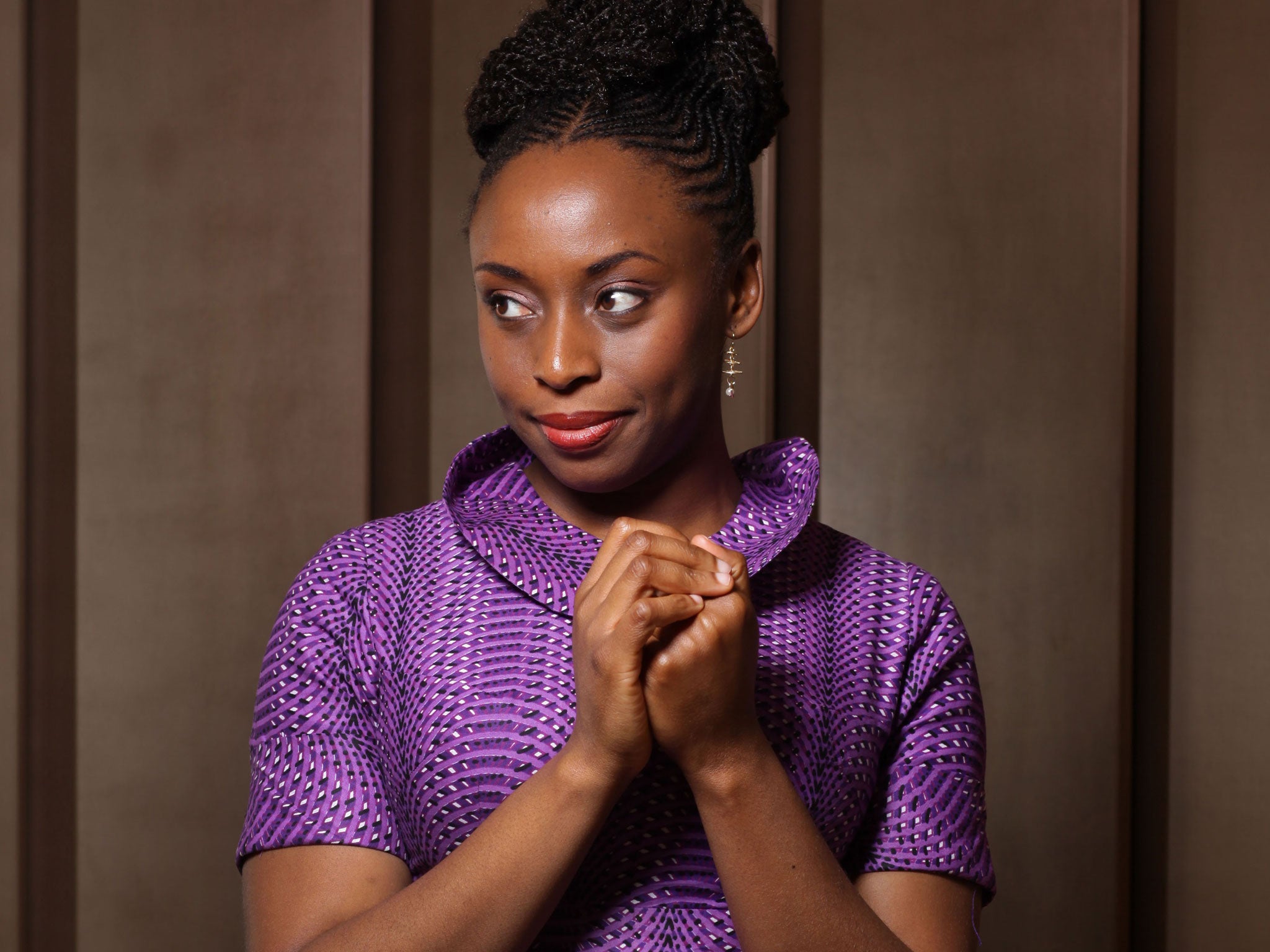Review: Americanah, By Chimamanda Ngozi Adichie
American life is not as it appears on television, discovers the Nigerian heroine of this unendingly perceptive culture-clash love story

Your support helps us to tell the story
From reproductive rights to climate change to Big Tech, The Independent is on the ground when the story is developing. Whether it's investigating the financials of Elon Musk's pro-Trump PAC or producing our latest documentary, 'The A Word', which shines a light on the American women fighting for reproductive rights, we know how important it is to parse out the facts from the messaging.
At such a critical moment in US history, we need reporters on the ground. Your donation allows us to keep sending journalists to speak to both sides of the story.
The Independent is trusted by Americans across the entire political spectrum. And unlike many other quality news outlets, we choose not to lock Americans out of our reporting and analysis with paywalls. We believe quality journalism should be available to everyone, paid for by those who can afford it.
Your support makes all the difference.When, in Chimamanda Ngozi Adichie's new novel Americanah, Obinze and Ifemelu fall in love, they fall hard and fast. Ifemelu, whose previous experience has been limited to playing at Mills and Boon stories with her friends, suddenly finds she's "jolted by a small truth in those romances. It was indeed true that because of a male, your stomach could tighten up and refuse to unknot itself, your body's joints could unhinge, your limbs fail to move to music, and all effortless things suddenly become leaden."
The more they talk, "hungry to know each other," the more the pair's mutual like deepens, lighting in each of them that hauntingly rare quality, "a self-affection". "He made her like herself," Ifemelu realises. "With him, she was at ease; her skin felt as though it was her right size." Their connection is easy and electrifying, the stuff of true, once-in-a-lifetime love.
But just as Adichie is involving us in their engaging story, she ruthlessly separates them. Obinze and Ifemelu fall in love as teenagers in late-1980s Nigeria, amid ongoing strikes and nationwide discontent that makes studying nigh on impossible: "Campuses were emptied, classrooms drained of life. Students hoped for short strikes, because they could not hope to have no strike at all." It is a time of mass emigration, and Ifemelu's Aunt Uju flees to America when her married lover, a military general, is killed in a plane crash. Before long, Ifemelu joins her on a scholarship, with Obinze promising to follow within a few years.
Ifemelu's ideas of America are shiny, glossed by television shows and advertising: "She saw herself in a house from The Cosby Show, in a school with students holding notebooks miraculously free of wear and crease." Instead, of course, she finds that her life in America is nothing like television. And by the time Obinze applies for his own visa, times have changed – it's the jittery post-9/11 years – and he is forced to try his luck as an illegal immigrant in Britain.
In this sprawling book, Adichie puts racism, the dark malaise of "choicelessness" and the changing face of global politics under her microscope. Part fairy tale, part adventure, the ambitious novel follows Ifemelu and Obinze with attention and sympathy, charting their humiliations and indignities, their failures and successes, capturing in empathetic detail what happens when people go in search of choice and certainty far from home. "You are in a country that is not your own," Uju tells Ifemelu. "You do what you have to do if you want to succeed."
As Ifemelu does her best to fit in, to learn her new home, to be one of the girls – drinking beer and discussing Tobey Maguire, learning the ways of frat parties and pre-approved credit cards – she quietly wonders about her friends: "How did they know when to laugh, what to laugh about?"
Ifemelu finds an outlet to her frustrations and observations by writing an increasingly popular blog, with musings such as "Why Dark-skinned Black Women – Both American and Non-American – Love Barack Obama" and "To My Fellow Non-American Blacks: In America, You Are Black, Baby." Her online postings turn her into a sought-after speaker on the hot-button topics of race, diversity and multiculturalism and help to land her a prestigious fellowship. Meanwhile, Obinze toils in English toilets, warehouses and construction sites, envying others their freedom: "You can work, you are legal, you are visible, and you don't even know how fortunate you are."
Adichie is terrific on human interactions – some of the strongest set pieces are dinner party scenes, in which well-intentioned, well-educated and moneyed people speak with open hearts and narrow minds, casually exposing their limitations and blind spots. Other revelatory episodes include Ifemelu's extended visit to a New Jersey hair salon and Obinze's charming relationship with his co-workers in a bleak corner of Essex.
Adichie's writing always has an elegant, accessible shimmer to it. Even her shortest turns of phrase evoke a much larger, encompassing image: a rebuffed American woman wraps herself in "the pashmina of the wounded"; a "man of careful disciplines … did not have a normal spine but had, instead, a firm reed of goodness"; a supposedly uncomplicated woman is encapsulated as "a literal person who did not read, she was content rather than curious about the world"; and Ifemelu listens routinely to Uju "airing her grievances like jewels … Aunty Uju collected all her dissatisfactions in a silk purse, nursing them, polishing them, and then … she would spill them out on the table, and turn each one this way and that, to catch the light."
If Americanah's end comes rather predictably, and in a bit of a rush, the novel overall remains wise, entertaining and unendingly perceptive.
Fourth Estate £20
Join our commenting forum
Join thought-provoking conversations, follow other Independent readers and see their replies
Comments